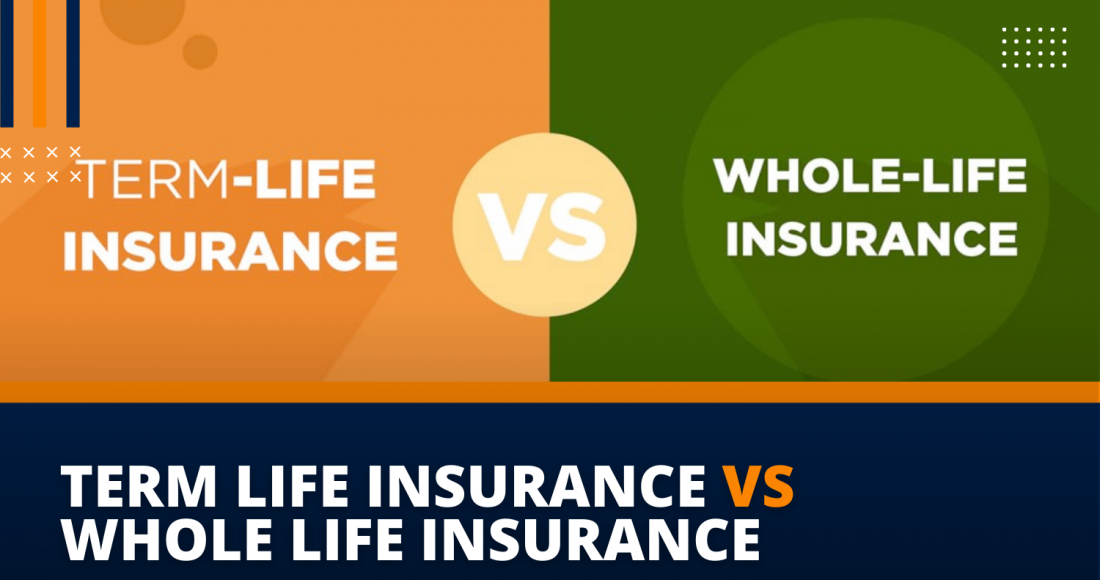Key Differences Between Term and Whole Life Insurance sets the stage for this enthralling narrative, offering readers insights into the fundamental aspects of life insurance. As individuals navigate their financial planning, understanding these two primary types of life insurance becomes essential. Term life insurance provides coverage for a set period, while whole life insurance offers lifelong protection with a cash value component, making it vital to grasp their distinct features and benefits.
In today’s fast-paced world, the choice between term and whole life insurance can significantly impact financial security and peace of mind. Each type serves different needs; thus, a thorough understanding of their characteristics empowers individuals to make informed decisions tailored to their unique situations.
In today’s fast-paced world, the quest for personal growth and self-improvement has taken center stage for many individuals. Whether it’s through reading self-help books, attending workshops, or engaging in online courses, the desire to enhance one’s skills and mindset is universal. This article will explore various methods for achieving personal growth, the importance of setting goals, and how to maintain motivation throughout the journey.Personal growth is defined as the ongoing process of understanding and developing oneself to achieve one’s fullest potential.
It encompasses various aspects of life, including emotional, intellectual, social, and spiritual development. The journey to personal growth is unique for everyone, but certain foundational principles can guide individuals along the way.To begin with, setting clear and achievable goals is crucial for personal growth. Goals provide direction and a sense of purpose. They act as a roadmap, helping individuals navigate their development journey.
When setting goals, it’s essential to utilize the SMART criteria, which stands for Specific, Measurable, Achievable, Relevant, and Time-bound. By adhering to this framework, individuals can create well-defined objectives that are easier to attain.For instance, rather than stating a vague goal like “I want to be healthier,” a SMART goal would be “I will exercise for 30 minutes at least four times a week for the next three months.” This level of specificity makes it easier to track progress and stay motivated.Another vital aspect of personal growth is self-awareness.
Understanding one’s strengths, weaknesses, values, and beliefs can significantly impact the ability to grow. To foster self-awareness, individuals can engage in practices like journaling, meditation, or seeking feedback from trusted friends or colleagues. These activities encourage reflection and provide insights into one’s behavior and thought patterns, which is essential for identifying areas for improvement.Moreover, embracing challenges and stepping outside one’s comfort zone is another key component of personal growth.
Growth often occurs when individuals face new experiences that push their limits. This does not mean taking unnecessary risks but rather being open to opportunities that may initially seem daunting. For example, public speaking can be intimidating, but participating in a speaking course or joining a local Toastmasters club can help build confidence and develop communication skills.Networking and building relationships is also an integral part of personal growth.
Engaging with diverse groups of people expands perspectives and exposes individuals to new ideas. Building a support system of like-minded individuals can provide encouragement and motivation, especially during challenging times. This network may include mentors, peers, or even online communities that share similar interests.In addition to social connections, continuous learning plays a vital role in personal development. In today’s information age, there are countless resources available for learning new skills or enhancing existing ones.
Online platforms like Coursera, Udemy, and LinkedIn Learning offer a plethora of courses on various subjects. Whether it’s learning a new language, mastering a programming language, or exploring creative writing, the options are virtually limitless. The key is to remain curious and open to new knowledge.Equally important is the practice of self-care. Personal growth can be an intense journey, and neglecting one’s physical or mental well-being can lead to burnout.
Prioritizing self-care activities, such as regular exercise, adequate sleep, healthy eating, and mindfulness practices, is essential for maintaining energy and focus. By taking care of oneself, individuals can better equip themselves to tackle the challenges that come with personal growth.Another critical factor to consider is resilience. The path to personal growth is often fraught with setbacks and obstacles. Developing resilience allows individuals to bounce back from failures and learn from their mistakes.
Cultivating a growth mindset, which is the belief that abilities and intelligence can be developed through dedication and hard work, is vital in this regard. By viewing challenges as opportunities for growth, individuals can maintain a positive outlook even in the face of adversity.Furthermore, celebrating small wins is essential in the journey of personal development. Acknowledging progress, no matter how minor, can boost motivation and reinforce positive behaviors.

Keeping a success journal, where individuals document their achievements and milestones, can serve as a reminder of how far they have come. This practice instills a sense of accomplishment and encourages individuals to keep pushing forward.Lastly, it is important to recognize that personal growth is a lifelong journey. There will always be new skills to learn, experiences to gain, and challenges to overcome.
Embracing this ongoing process allows individuals to continuously evolve and adapt in an ever-changing world. By maintaining a commitment to personal development, individuals can enhance their quality of life and achieve greater fulfillment.In conclusion, personal growth is an enriching journey that encompasses various aspects of life. By setting clear goals, fostering self-awareness, embracing challenges, building relationships, engaging in continuous learning, prioritizing self-care, developing resilience, and celebrating achievements, individuals can cultivate a fulfilling and meaningful life.
Whether it’s through pursuing new interests or enhancing existing skills, the journey of personal growth is one that can lead to profound changes and a deeper understanding of oneself. Remember, the key to personal growth lies in the commitment to becoming the best version of oneself and enjoying the journey along the way.



